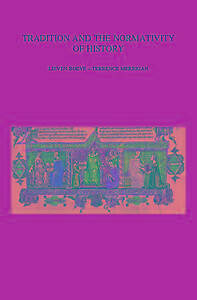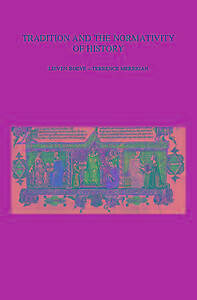
- Retrait gratuit dans votre magasin Club
- 7.000.000 titres dans notre catalogue
- Payer en toute sécurité
- Toujours un magasin près de chez vous
- Retrait gratuit dans votre magasin Club
- 7.000.0000 titres dans notre catalogue
- Payer en toute sécurité
- Toujours un magasin près de chez vous
Tradition and the Normativity of History
55,00 €
+ 110 points
Description
This collection of essays by some of the world's leading theological voices aims at unfolding and reflecting upon the complex relationship between theology and history, with a special focus on the development of tradition. The articles gathered here make it clear that the role of historical consciousness within theology and the contribution of historical studies to the theological disciplines, are of paramount importance, and fundamentally alter the shape of the theological enterprise. Rather than destroying theology, tradition and theological truth claims, historical consciousness contributes to the deconstruction of all facile appeals to history in order to support theological claims, and works to prevent us from proposing simplistic readings of tradition in terms of continuity or discontinuity. Moreover, it offers new opportunities to theology to engage in the process of recontextualization in the contemporary context, taking into account its sensibility to historicity, contingency and particularity. It allows us, for example, to think resurrection anew, and to constructively criticize our forgetfulness of dangerous memories. It is not by overcoming these features of the contemporary age that theology will succeed in its striving after theological truth, but by discerning how such truth is revealed precisely within, and thanks to, particular and contingent histories, and not in spite of historicity, contingency and particularity. When this is done, the dialogue between theology and history/historical studies contributes to a contemporary reconsideration of the radical dialogical character of revelation, that is, of the way in which God reveals Godself in history. It is the hope of this collective volume that it will further deepen the understanding of revelation that was developed in Vatican II's constitution on divine revelation, Dei verbum.
Spécifications
Parties prenantes
- Editeur:
Contenu
- Nombre de pages :
- 225
- Langue:
- Anglais
- Collection :
- Tome:
- n° 263
Caractéristiques
- EAN:
- 9789042929654
- Date de parution :
- 13-08-13
- Format:
- Livre broché
- Format numérique:
- Trade paperback (VS)
- Dimensions :
- 160 mm x 239 mm
- Poids :
- 385 g

Les avis
Nous publions uniquement les avis qui respectent les conditions requises. Consultez nos conditions pour les avis.





